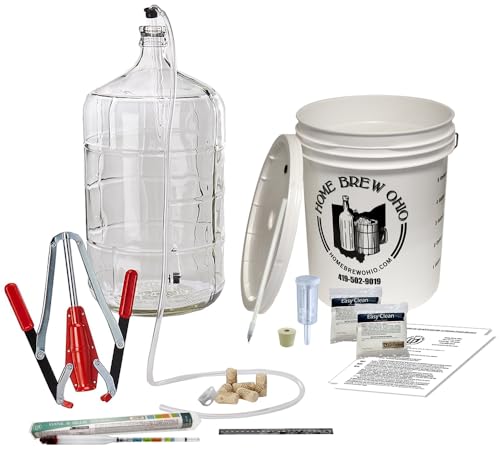Lots of web sites insist that elderberries must be heated before eating, but there is not much scientific support for that idea. The best scientific paper on the subject of Cyanogenic Glycosides in elderberries that I have found is here:
https://www.ncbi.nlm.nih.gov/pmc/articles/PMC7961730/
A key paragraph (emphasis mine):
The only record that I can find of people hospitalized for consuming raw elderberries was the 1983 incident in California mentioned above. They people involved consumed large amounts of juice made from elderberries, along with leaves and stems. The concentration of Cyanogenic Glycosides is much higher in the stems and leaves, so it is important to only use the berries. I also found one source that suggested that the concentration of these compounds are higher in the seeds.
It is also important to consider the concentration of toxic substances in the wine. It is possible that consuming a gallon or two of elderberry wine at one time would provide an unsafe level of Cyanogenic Glycosides. Of course if you consume that much wine, you have much bigger problems.
I am not a scientist or a medical expert, but for myself I don't see a need to heat elderberries when making wine. You can decide for yourself what you want to do. Of course, as
@hounddawg mentioned,
red elderberries (a different variety) are poisonous, so you should definitely avoid those.
I have tried raw elderberries, they draw up your lips and you can tell one little elderberry is mildly toxic, as well as the bark of the wild black elderberry, , i do know some still living old timers that make a syrup as well as juice and jam, how i don't know, but I do know that by fermenting the only harm is, you might walk off a cliff and break your neck, lol,, never knew the science of it, just learned from old timers dead better then 40 years, (from old age) that aged 6/7 years not bad drinking, 8/9 years good drinking, 10 years and plus absolutely killer good, as i said back a few years ago, i wanted to marry the old hills way, with modern chemicals that could sanitize, reading a SG so to knowingly make the same year in year out, I try to keep on a simple trail, shoot people made wines thousands of years ago, it was hit or miss, till you got old enough to keep your average up. but with a little technology, it made it easy to hit year after year, knock on wood i have had one 6 gallon batch of apple go south on me, way above the old timers average, shucks now if i look into a mirror a old timer is looking back at me. bummer,,,
there are those on here that's been making elderberry wine longer then i've been alive, but not by much, lol... as i have said I've drank elderberry wine better than 50 years now, now that ain't saying much since it is believed that i ate leaded paint chips as a youngster, hehe,,, If something is wrong with me it ain't from drinking non-heated elderberry wine, there are those on here that can explain the science , like maybe
@Rice_Guy , he's got book smarts, as do many others on here, this is a world class forum, CREAM OF THE CROP that tolerates the likes of me, Thankfully.
Dawg






















































